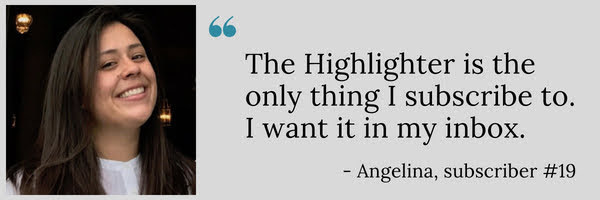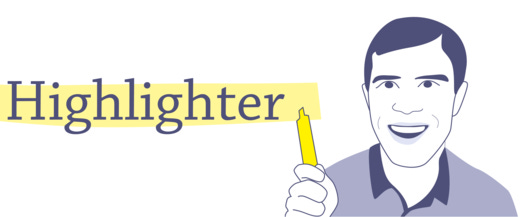#229: How To End Traffic

I spend way more time in my Honda Fit than I care to admit. Given where I live, and where I work, and my access to public transit, I could easily modify my behavior and reduce my harm to the environment. But it’s easier to stay warm in the mornings, listen to podcasts on my commute, and spend time worrying about climate change. Is this you, too? If so, let me know if today’s lead article makes you change your habits.
Also this week, enjoy articles about how technology can make education worse, how technology can make music better, and how Las Vegas is more than just slot machines and Sting.
+ If you want to deepen your reading and connect with other thoughtful people, join February’s Article Club. This month, we’re discussing Paul Tough’s “Getting an A,” from his outstanding book The Years That Matter Most: How College Makes Or Breaks Us. If you’re a teacher or a parent, or you care about social equity, or you like outstanding writing, go here to learn more and to sign up.
Cars kill people, contribute to global warming, and cause us to avoid our fellow humans, thereby preventing opportunities to build community. This article, which suggests that we follow Europe’s example, offers five ways we can aggressively reduce traffic in urban areas. My favorite: Eliminate street parking. Though I’m a total hypocrite, I agree with the writer’s premise that “places without cars are simply more pleasant places to be.” (Something tells me that Lyft and Uber aren’t the answer.) (17 min)
+ Can we do this here? Hit reply and let me know.
Technology Doesn’t Solve Racism: Surveillance Apps In The Classroom
ClassDojo, a wildly popular app among teachers, seems like a good idea: Give parents real-time data about how their kids are doing in the classroom. But in addition to privacy concerns, ClassDojo is yet another tech tool that may exacerbate racist patterns in classroom management. “Apps do not address the root cause of inequity,” says Prof. Shanara Reid-Brinkley. “These sorts of mechanisms allow teachers to be blind to their own bias.” (8 min)

Loyal reader, Article Clubber, and VIP member Angelina isn’t afraid to speak her truth. Do you have kind words to share about The Highlighter? highlighter.cc/kindwords
More than half of all Americans have visited Las Vegas, but don’t say you live there unless you’re ready for scorn. “I have often wondered whether the general ignorance about Las Vegas is born of laziness, snobbery, or an altogether more insidious impulse,” writes Amanda Fortini, in this steadfast, unapologetic ode to her city. “As a writer, as a human, no place has ever captured my attention, my imagination, and my concern as this city has.” Even if you don’t care one bit about Las Vegas, read this piece for Ms. Fortini’s writing. (22 min)
A Decade Of DJing: How Technology Changed The Art Form
If you guessed that this is the first article about DJing ever to appear in The Highlighter, you’re right. That’s why I liked this article, because reading is about learning new things, right? Sure, I knew about beatmatching and how technology has made DJing more accessible and democratic (despite its detractors). But the nuances of the sync button and the slip function? New knowledge. (Vaporwave and lo-fi house, too.) (10 min)
+ Did you learn something new, too? Let me know.
+ Reader Annotations: An anonymous loyal reader loved “Becoming A Man” and shared these thoughts:
The article is beautifully written and does a good job of describing the writer’s experience moving from an oppressed group to that of the oppressor (and how he enjoyed aspects of this). I think about my own kid and her (current pronoun) experience being seen differently according to her outward appearance. I think she associates power and freedom to being a boy. But once in that power, she doesn’t feel right, like it’s not earned and so doesn’t make use of it. This piece speaks to that navigation of moving through the world with those societal expectations weighing heavy on our hearts and bodies.
Loyal reader Samantha wondered whether the trend described in “Death-Positive Millennials Are Planning Their Funerals Early” could be explained by one journalist’s reporting, rather than a general pattern:
I’m curious as to how many of the millennials the writer got their information from experienced death of others, especially at a younger age or unexpectedly. Two people they spoke about had recently lost someone themselves. One lost a grandparent, and though they did not say the grandparent’s age, it did seem unexpected. Another, at the end, had just lost three people in a short period of time. I’m not sure if it’s millennials thinking more about death (it could be though because I do think we want to make things less taboo) or if it’s just people who have experienced a certain type of loss because it becomes more a part of your reality.
Thank you very much for these contributions. Loyal readers, keep your thoughts coming. I welcome your ideas and respond to every email I receive. All you need to do is hit reply!
Did you like today’s issue? Please let me know by clicking on the thumbs-up or -down below. Also, let’s welcome our reading community’s new subscriber Rita. I hope that you find this newsletter a welcome addition to your Thursday email inbox.
If you like The Highlighter, please help it grow and get better. I appreciate your support. Here are a few ways you can help:
Share this issue with a friend and urge them to subscribe,
Keep me awake on late Wednesday nights, as I put the newsletter together, by buying me a coffee,
Contribute to the long-term success of the newsletter by becoming a generous VIP member.
On the other hand, if the newsletter is not a great match for your inbox, please unsubscribe. See you next Thursday at 9:10 am!
Don’t miss out on the other issues by Mark Isero
Become a member for $3 per month
You can manage your subscription here.
In order to unsubscribe, click here.
If you were forwarded this newsletter and you like it, you can subscribe here.
Created with Revue by Twitter.




